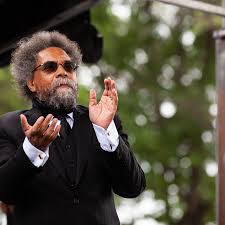What I Believe about America as a “Christian Nation”
Is America a Christian nation? Was it ever one? What does the question even mean? A heated debate has swirled around this question (or these questions) for many years—especially since the Supreme Court’s ruling against organized or teacher-led prayer in public schools. Is America even a theistic nation? If not, why is “In God We Trust” printed on our coins? (Don’t comment on the history of that; it’s just a fact and how or when it began isn’t relevant here.)
There are many answers to the question “Is America a Christian nation?” Also to “Was it ever one?” Too many answers to cover here. I will just say here what I think.
I hold a PhD in Religious Studies from a major secular American research university (Rice). I have read numerous books about these questions including ones that express opposite answers.
I think it all depends on what one means by “Christian nation.”
I do believe that certain Christian ideas strongly influenced the “founding fathers” of the United States. All of them, with the possible exception of Benjamin Franklin, considered themselves Christians in some sense. I doubt that any of them ever envisioned a time when the new republic would be anything but basically a Christian nation (although some of them expressed strong favor toward toleration of pluralism).
On the other hand, I do not think that any nation is Christian in the true sense of the word. A nation can be founded on Christian principles and may favor Christianity. I don’t think that makes it a “Christian nation.” The only truly Christian “nation” is the worldwide and universal Body of Christ, the church. And it isn’t a “nation” exactly. Although the word “nation” has been used for similar groups of people with no particular “homeland.”
On the other hand, I do think that basic Christian tenets form an intrinsic part of the “fabric” of the American experiment. Unfortunately, America has often fallen way from those tenets or ideals. Yet, critics of the government’s decisions and actions could at least use some of them as “critical principles” to call for change. Martin Luther King, Jr did that in his Letter from Birmingham Jail. Many others have done that. Abraham Lincoln talked about “the better angels of our nature” and probably had in mind some kind of generic Christian character.
On the other hand, especially since the Second World War, America, as a nation and society, has increasingly drifted away from its Christian moorings. I think it was possible to say, in the 19th century, that America was in some sense a Christian nation—with many qualifications. Not that the nation-state was Christian but that the social order and fabric of the nation was saturated with Christian beliefs and ideals.
So what “Christian beliefs and ideals” am I talking about? Well, the belief and ideal that every individual human being possesses inherent dignity and worth which is the foundation of basic human rights. This forms the foundation of compassion for the “least of these.” Certainly America has often lost its way on certain crucial issues, even when its belief and ideal about the human individual was strong. It has not lived up to its own ideals and beliefs.
However, I doubt that America can now be said to be, in any sense, a Christian nation. Pluralism has taken over. There is no longer any common belief or ideal. The extremes of the political and social “left” and “right” have torn away at that, trampling it under foot.
So what will I, as a Christian, do when I enter the voting booth? I will vote for Cornel West—a Christian prophet to America. Is he a messiah? No, of course not. But in contrast to most partisan political persons he speaks truth to power and calls for change and, as in the case of MLK Jr, his speech is fundamentally Christian in that it is for the rights and freedoms and flourishing of the downtrodden, the forgotten, the marginalized, the oppressed.
*Note: If you comment, make sure your comment is relatively brief (no more than 100 words), on topic, addressed to me, civil and respectful (no more than 100 words), and devoid of pictures or links.*














